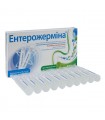
Indication
Brain swelling caused by brain tumor, neurosurgery, bacterial meningitis, brain abscess.
Severe acute asthma attack.
Initial oral treatment of extensive, severe, acute skin diseases responsive to glucocorticoid therapy, eg erythroderma, pemphigus vulgaris, acute eczema.
Initial oral treatment of autoimmune disorders such as systemic lupus erythematosus (especially its visceral forms).
Severe progressive course of active rheumatoid arthritis, for example, destructive forms and/or extra-articular manifestations.
Severe infections with toxic conditions (eg, tuberculosis, typhus) only with concomitant anti-infective therapy.
Palliative treatment of tumors.
Prevention and treatment of postoperative vomiting or vomiting caused by cytostatics in combination with antiemetics.
Method of application and dosage
Dexamethasone is taken in usual doses from 0.5 to 10 mg per day, depending on the disease being treated. In more severe conditions, doses of more than 10 mg per day may be required. The dose is selected depending on the individual response of the patient and the severity of the disease. Initial doses of dexamethasone are used until a clinical response occurs, and then the dose should be gradually reduced to the lowest clinically effective dose. For the treatment of acute severe conditions, much higher doses are used than for the treatment of chronic diseases. In order to minimize side effects, the lowest effective dose should be used.
Unless otherwise specified, follow the dosage recommendations below.



